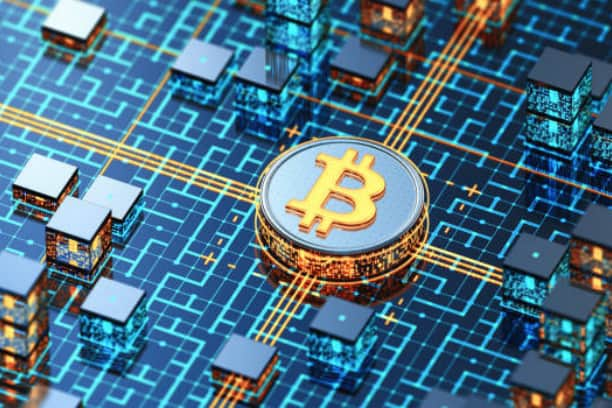What are the advantages of digital money over traditional money?
When we talk about digital money, it is natural to compare it with traditional money. In fact, digital currencies have many significant advantages over traditional currencies. Whether it's the efficiency of cross-border transactions, the ability to fight inflation, or the ability to break through the constraints of geography and financial systems, digital money is changing our financial landscape. In this article, we'll take an in-depth look at the key differences between digital and traditional currencies, and learn about the advantages of each. Whether you're new to the topic or a veteran, this article will help you get a comprehensive understanding of the topic.

Advantages of Cross-Border Payments
One of the most obvious advantages of digital money is its ability to simplify and accelerate cross-border payments. Compared to the traditional banking system, digital money allows for real-time transactions around the world without the need for cumbersome banking intermediaries or third-party organizations. Whether you're in Taiwan, New York, or Cairo, you can transfer money instantly when you have a digital wallet. This not only saves a lot of time, but also dramatically reduces transaction costs, which is a major advantage especially for users making cross-border remittances.
Potential to combat inflation
In traditional monetary systems, inflation has always plagued national economies, especially in certain hyper-inflationary countries where the risk of currency devaluation is ever-present. Some types of digital currencies, such as Bitcoin, have a fixed maximum supply, which gives them a distinct advantage in combating inflation. Because of Bitcoin's supply constraints, governments are unable to issue more money at will, which effectively avoids the risk of inflation that is often associated with traditional monetary systems. Digital currencies offer a viable alternative for investors who wish to preserve value.
Financial Freedom Without Borders
While traditional currencies are often subject to national laws and regulatory bodies, digital currencies are not. No matter where you are in the world, digital currencies give you greater financial freedom. This borderlessness makes digital money especially suitable for users from countries with high inflation or strict financial regulations. You are free to store, transfer and trade digital currency without fear of interference from government policies or financial institutions, making it a reliable asset protection tool in certain special circumstances.
Security and Transparency
The security of digital currencies is often mentioned, and blockchain technology is one of its core strengths. Each transaction is recorded on a decentralized blockchain, which means that the transaction data cannot be tampered with and the transaction records are public and traceable. Unlike traditional banking transaction systems, digital currencies usually do not involve intermediaries in the transaction process, which not only increases the transparency of transactions, but also reduces the risk of fraud and corruption. Although digital currencies still face some security challenges, such as hacking attacks, overall the introduction of blockchain technology gives digital currencies a competitive edge in terms of security.
Low transaction costs and efficiency
Transaction costs for digital currencies are typically low compared to the transaction fees found in traditional financial systems. Many digital currency trading platforms, such as OKEx, offer low transaction fee rates, allowing users to trade at a much lower cost. Digital currency transactions are also much faster than traditional payment systems, especially when it comes to large transactions or cross-border payments, which are often processed faster and can be done 24 hours a day. This not only saves time for users, but also reduces transaction costs and enhances the operational efficiency of the financial markets.

Investment and Asset Enhancement Opportunities
For many investors, digital currencies offer more flexible asset allocation options. From Bitcoin and Ether to various DeFi (decentralized finance) products, the rapid growth of the digital currency market has attracted a large amount of capital. Although the price of digital currencies is volatile, many have continued to rise in value over the long term, generating strong returns for investors. Digital currencies are not only a payment tool, but also a potential investment class that offers more opportunities for asset appreciation. Many cryptocurrency exchanges also offer rebate incentive programs to help users earn extra money on their trades.
Frequently Asked Questions Q&A
Q1: What are the risks of digital currency trading?
The price of digital currencies is very volatile and the ups and downs of prices within a short period of time can be very significant, which is a risk that investors need to consider. Even though the blockchain technology itself is secure, the security of the exchange platform remains a key issue, and there have been incidents in the past where digital currency exchanges have been hacked. Therefore, it is important to choose an exchange with a good reputation and security protection.
Q2: How to choose the right digital currency exchange?
When choosing an exchange, you should consider factors such as its trading fees, the security of the platform, the range of pairs to choose from, and user reputation. For example, OKEx is a well-known exchange that offers a wide range of digital currency trading pairs and rebate programs for all types of investors.
Q3: Can digital money replace traditional money?
Although digital currencies have significant advantages in terms of payment and investment, there are still many countries that regulate or restrict the use of digital currencies. As a result, the process of replacing traditional currencies with digital currencies may take a longer period of time and involve more regulatory and technical challenges. As blockchain technology continues to mature, digital currencies will be used in a wider range of applications.














